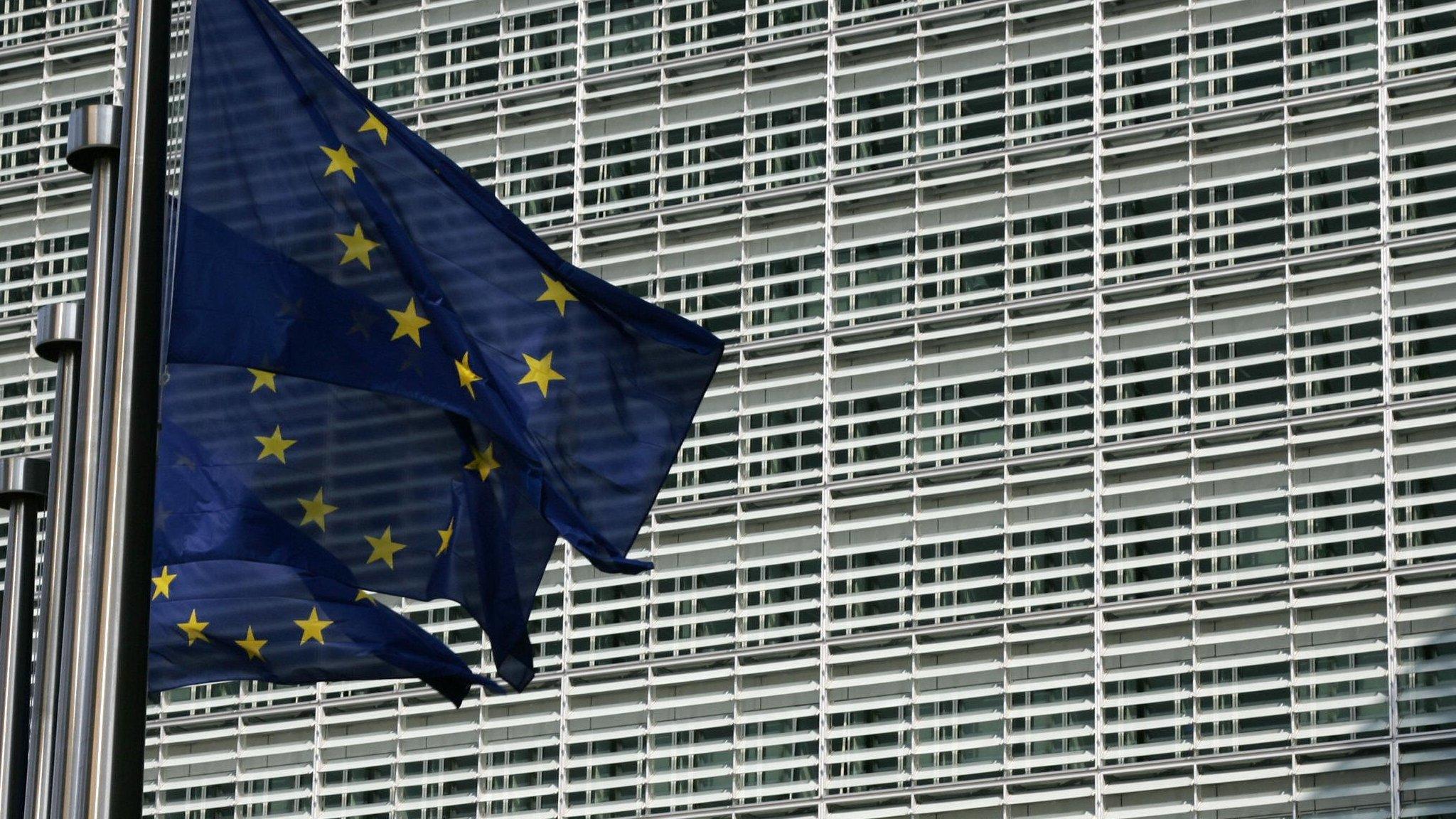Hungary enforces 'cruel' ban on rough sleeping
- Published
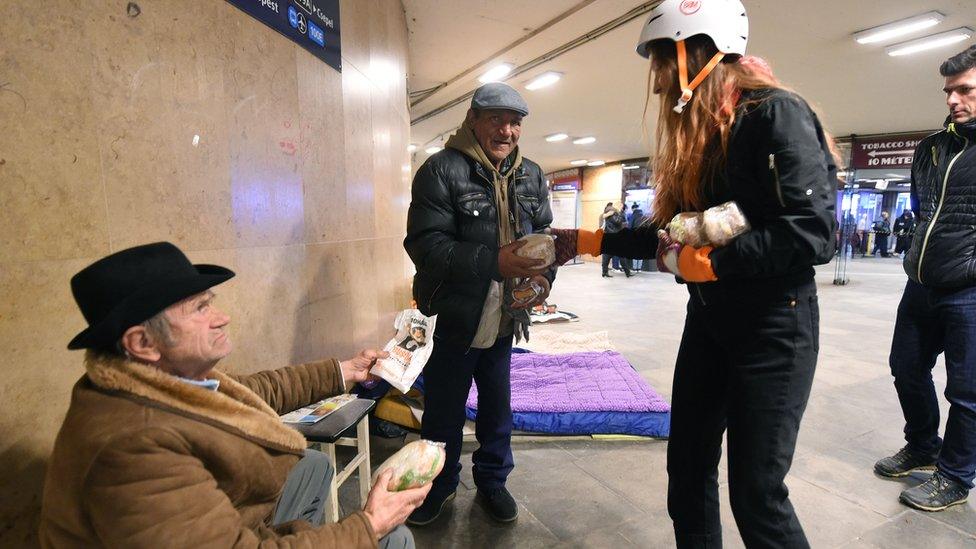
Sleeping rough in public areas is now against the law in Hungary.
The law was brought in by Prime Minister Viktor Orban's government, but the United Nations called it "cruel" insisting it goes against human rights.
It effectively outlaws living on the streets and was first approved by the Budapest parliament in June.
The government says that allowing police to remove rough sleepers from public places is in the "interests of society as a whole".
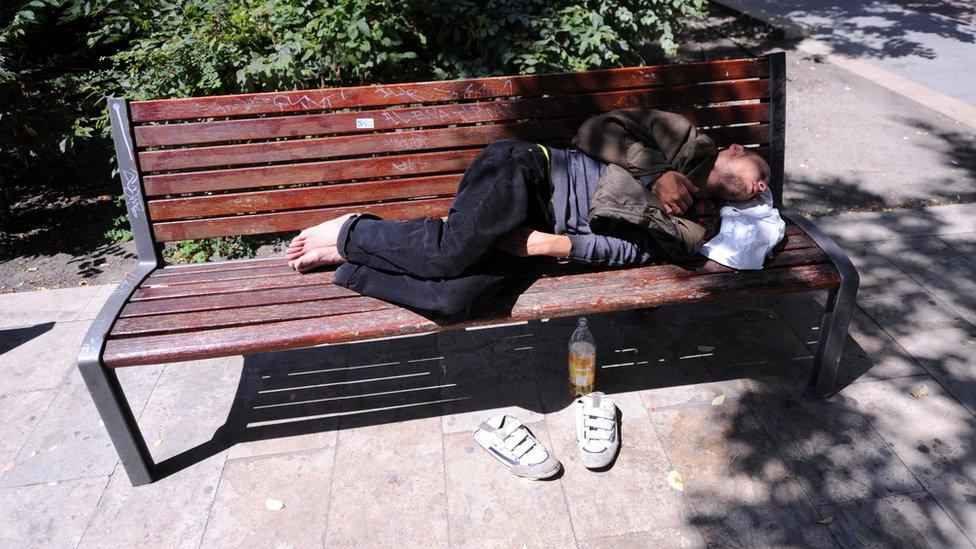
Tens of thousands of people are estimated to sleep rough in Hungary.
The law change comes into force on Monday and is a stronger version of a 2013 law that made rough sleeping a fineable offence.
Its goal is "to ensure that homeless people are not on the streets at night-time and that citizens can make use of public space unimpeded," according to Attila Fulop, Social Affairs State Secretary.
In June, United Nations housing expert Leilani Farha called it "cruel and incompatible with international human rights law".
"What is this 'crime' homeless people have committed? Merely trying to survive?" she said in an open letter to the government.
There are an estimated 11,000 places available for the homeless in state-run shelters.
But experts say at least 20,000 people are homeless across the country.
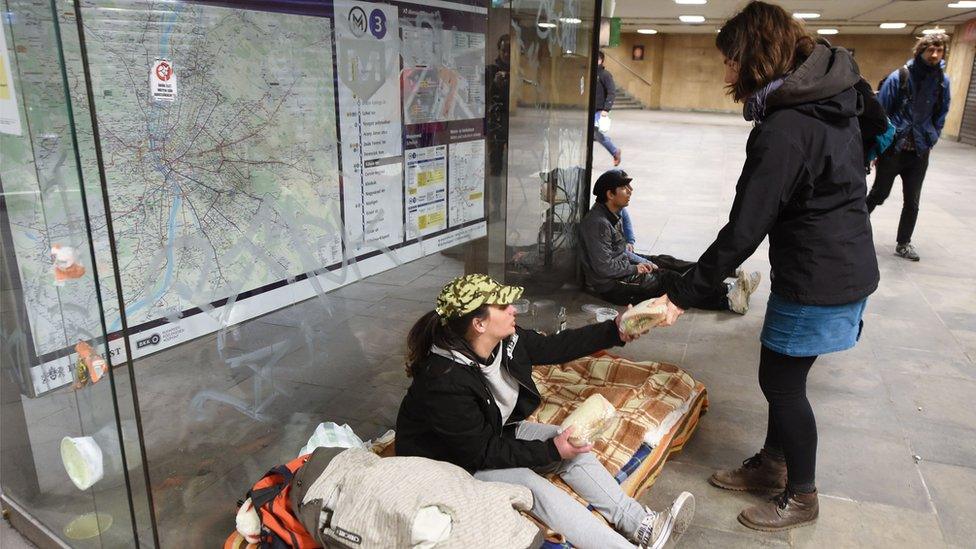
Student and volunteer group the 'Budapest Bike Maffia', who protest against poverty give out sandwiches to homeless in the capital Budapest.
Last month, the European Parliament voted to launch legal action, after members said that Hungary's treatment of its homeless contributed to a "clear risk of a serious breach" of European Union values.
The government in Hungary says it is increasing funding for homeless provision.
"Help is provided in a dignified manner," it said in a statement, external.
"Homeless people are offered day and night accommodation where they are able to eat, to clean themselves and to sleep."
Follow Newsbeat on Instagram, external, Facebook, external and Twitter, external.
Listen to Newsbeat live at 12:45 and 17:45 every weekday on BBC Radio 1 and 1Xtra - if you miss us you can listen back here.
- Published1 December 2011
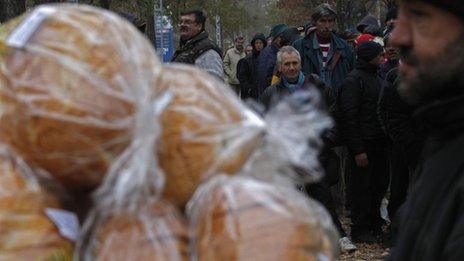
- Published1 October 2013
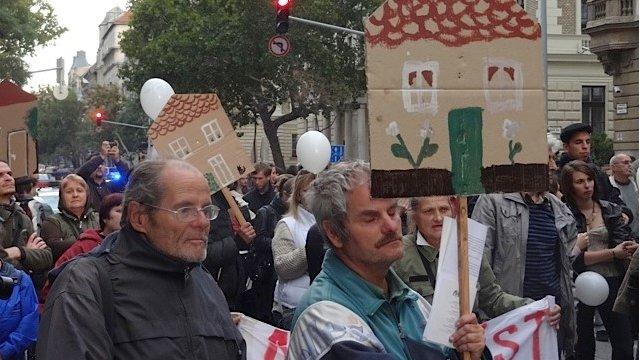
- Published11 June 2018
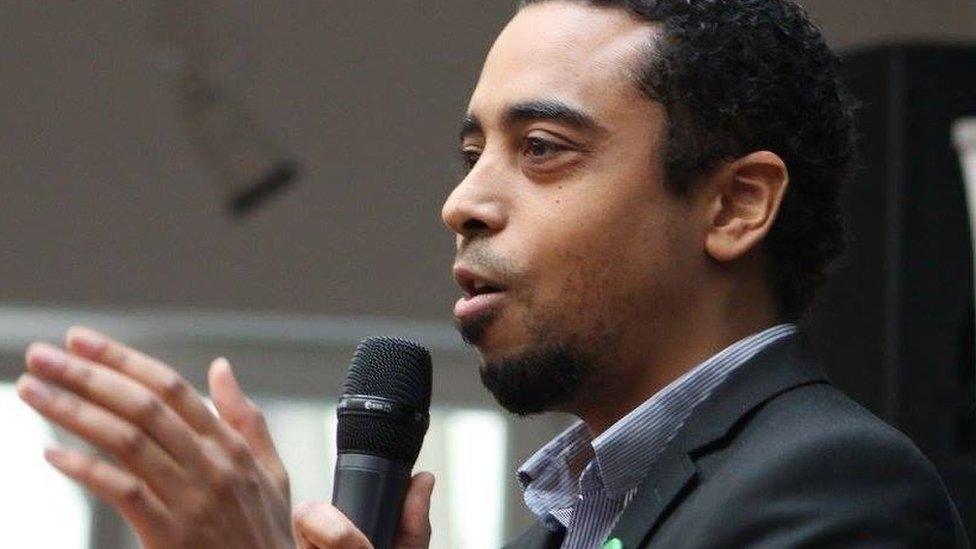
- Published12 September 2018
